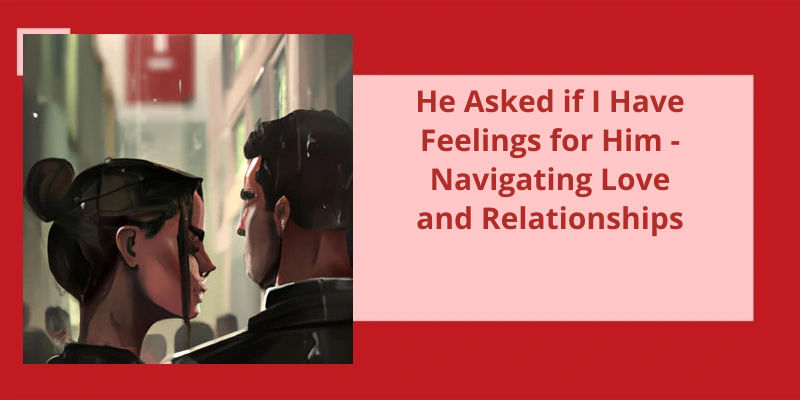On the surface, having a best friend that you feel uncomfortable around might seem counterintuitive and confusing. After all, if they're supposed to be your closest confidant, why would you feel uneasy in their presence? However, there are a number of reasons as to why you might experience this discomfort. It could be related to romantic feelings that you don't know how to articulate, or it could be due to their behavior or past actions that make you feel uneasy. Alternatively, it could stem from an underlying anxiety or a fear of awkward social interactions. Understanding the source of your discomfort is the first step towards finding a solution and strengthening your bond with your best friend.
How Do You Tell if You’ve Lost Your Best Friend?
There’s nothing quite as painful as losing a best friend; someone who’s been by your side through thick and thin, and who you thought you’d have in your life forever. Sadly, friendships can sometimes fade away without us even realizing it. One of the most common signs that youve lost your best friend is that you simply don’t talk as often as you used to. The messages become less frequent, phone calls dialed back, and before you know it, weeks have gone by without any contact at all.
Another clear indication is when you take an unusually long time to answer their messages or don’t answer at all. Maybe you find that youre not as invested in what they’ve to say anymore, or perhaps youre just too busy with other things that you don’t have the time for small talk. Whatever the reason may be, communication often breaks down and becomes increasingly awkward and uncomfortable. Before you know it, remaining close no longer feels like a priority.
You may also find that your interest in the conversation is minimal, or you just don’t feel the same sense of vibrancy in their presence as you once did. You may even find yourself feeling drained or disinterested when you hang out together. This is a clear sign that things aren’t like how they used to be. It may not mean that youve lost your best friend altogether, but it’s definitely worth noting. The other obvious sign is that no effort is being made to see each other.
If they seem to be making excuses not to hang out or outright ignore your invitations to get together, it’s easy to feel like it’s their fault that things are breaking down. It’s important to remember, however, that it takes two people to maintain any friendship, and if neither party is putting forth the necessary effort to be there for each other, then it’s probably best to just let the friendship go. Finally, if your best friend starts to blame you for the breakup of the friendship, it can be painful, puzzling, and stressful.
If youve done everything in your power to keep the friendship together and they still want to play the blame game, then it’s better to cut your losses and move on. While it’s never pleasant to lose a friend, holding on to a friendship if it’s no longer working isn’t worth it. Instead, focus your time and energy on people who love and cherish you for who you are, and who’re willing to be there through both the good times and the bad times. Remember, friendships may come and go, but you’ll always remain true to yourself and your worth as a person.
If you find yourself feeling uncomfortable around friends or in social settings, there are steps you can take to work through these feelings. One helpful tactic is to become more aware of social awkwardness and how it manifests in different situations. It’s also important to remember that feeling awkward is a universal experience, and there’s no need to be overly self-conscious about it. Facing awkwardness head-on by practicing social interactions and staying present can help you build confidence and feel more comfortable in your own skin.
How Do I Stop Being Uncomfortable Around Friends?
Feeling uncomfortable around friends or in social settings can be a challenging experience that many people can relate to. It’s natural to want to fit in and feel accepted by others, but sometimes social situations can leave us feeling uneasy. One way to address this discomfort is to spend some time learning more about social awkwardness. By understanding that awkwardness is a universal experience, you may be able to feel more accepting of this part of yourself.
It’s important to remember that no one is immune to the occasional awkward situation. Even the most socially confident people have moments where they stumble, misread social cues, or feel out of place. Acknowledging that awkwardness is normal may help you to take yourself less seriously and feel more relaxed in social situations.
When awkward moments do arise, it can be tempting to retreat or avoid further interaction. However, facing these moments head-on can be a more effective approach. Rather than avoiding the source of your discomfort, try to lean into it. This might involve acknowledging your feelings to yourself or others, or making a deliberate effort to engage in conversation or social activities despite your discomfort.
One way to build your confidence in social situations is to practice interacting with others. This might mean initiating conversations with strangers, volunteering for public speaking opportunities, or simply engaging with others in small talk as much as possible. The more you interact with others, the more comfortable you may begin to feel in social situations.
Another helpful strategy is to try to stay present in the moment. When we feel anxious or uneasy, it’s common to retreat into our own thoughts as a way of avoiding discomfort. However, this can actually make social situations feel more stressful. Instead, try to focus your attention on the people you’re with and the conversation at hand. By staying present and engaged in the moment, you may find that your discomfort begins to dissipate.
Building Social Support: Building a Strong Support System of Friends and Family Can Help Mitigate Social Discomfort by Having a Trusted Companion to Rely on in Social Situations.
- Develop strong relationships with family members
- Cultivate friendships with people who share your interests and values
- Join social clubs or groups to meet new people
- Practice healthy communication and active listening skills with your support system
- Be reliable and supportive in return to foster reciprocal relationships
- Consider therapy or counseling as a way to build and strengthen social connections
- Participate in community events and activities to meet new people and build social capital
- Don’t be afraid to ask for help or support when needed
Conclusion
Ultimately, it's important to take the time to understand why you feel uncomfortable around your best friend and address the root cause. It could be a difficult conversation, but in the end, it's important for both you and your friend to maintain a healthy and supportive relationship. Whether it's seeking professional help, improving your social skills, or setting boundaries, remember that your well-being is important and taking steps towards resolving any discomfort is a positive step towards a happier and more fulfilling life.






